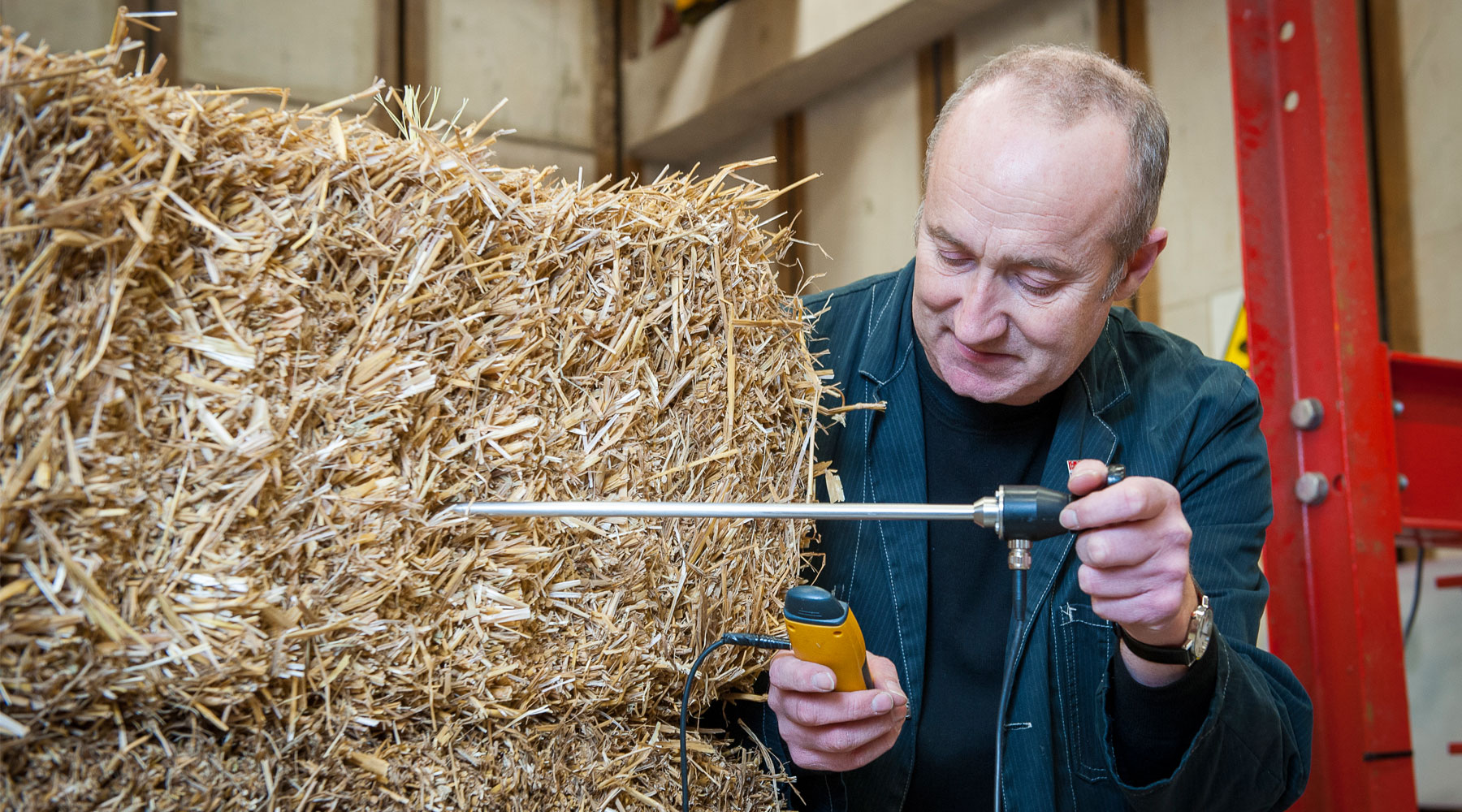“Cheaper to buy than existing similar conventional brick built homes in the area, and with significantly increased insulation, we proved that building with straw can help to address the housing crisis in the UK and enable occupants to live a better quality of life through the additional disposable income they will have as a result of cheaper energy bills.” - Professor Pete Walker
Building with straw
Professor Pete Walker, Department of Architecture & Civil Engineering on using straw to create insulated and eco-friendly homes in the UK.

Over the past 10 years, Professor Pete Walker has been studying the benefits of straw to prove that it is eco-friendly, sustainable and, more importantly, a safe building material.
His collaboration with a local design company led to the development of prefabricated straw bale cladding panels which proved that straw was more than a match for bricks. In rigorous tests, the panels withstood heavy rain and extreme temperatures.
Funding from the UK government and EU followed, along with a BM Trada’s Q mark certification, which recognises quality and allows homebuyers to get mortgages and insurance for straw buildings. The design of the panels was also awarded the prestigious PassivHaus accreditation.
In 2015, the UK’s first straw eco homes went on sale in Bristol. Their compressed straw bale insulation, along with triple glazed windows, is anticipated to reduce owners’ fuel bills by as much as 90 per cent.
But the benefits go far beyond fuel bills. Concrete is the second most consumed substance after water, with cement production accounting for around five per cent of the world’s industrial CO2 emissions. Because straw absorbs CO2 as it grows, straw homes have one of the lowest carbon footprints available, with many buildings being net carbon-negative.
Help fund more world-leading research
Support our university